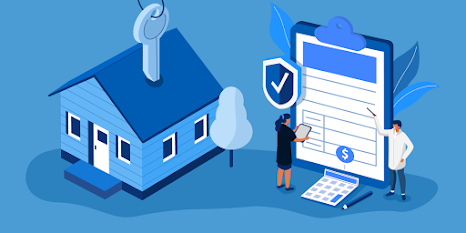Difference between Title Insurance, Mortgage Insurance & Homeowner’s Insurance
What is the purpose of each of my home insurance policies?
If you’ve ever been party to a home
transaction, you’ve encountered several different types of insurance. There’s
title insurance and mortgage insurance — and homeowner’s insurance is also
mentioned at closing. But what are the purposes of these distinct types of
insurance? Is each required? Here’s a look at the three different types of
insurance involved in a home transaction, the importance of each and the
differences between them.
1. Title Insurance
A title review is designed to
uncover any liens or encumbrances tied to a property being sold. A purchaser
acquires title insurance to protect him or her from any unexpected burdens that
went undetected during the title review. Given that a home transaction
represents a six- or seven-figure investment for the purchaser, title insurance
is an important purchase that provides full protection for that significant
investment.
2. Mortgage Insurance
If you’re struggling with
understanding the differences between mortgage vs. title insurance, you’re not
alone. There are two primary types of mortgage insurance:
Private Mortgage Insurance: This type of insurance is often required when a buyer makes a down payment of less than 20 percent. Private mortgage insurance protects the lender from losses if the buyer defaults on the loan. Some special lending programs allow buyers to skip private mortgage insurance even if they make a down payment of less than 20 percent. In these cases, the program backs the loan so that mortgage insurance isn’t required.
Mortgage Protection Insurance: A buyer can secure mortgage
protection insurance to help cover mortgage payments in case of unemployment,
disability or death. This is a crucial decision, and it’s often helpful to
consult a financial advisor before deciding whether mortgage protection
insurance is for you. As for private mortgage insurance, you don’t get a choice
— your lender will either require it or not.
3. Homeowner’s Insurance
Homeowner’s insurance is the policy
that protects the home itself after purchase. As you shop for homeowner’s
insurance, be sure to understand what situations policies cover and what they
do not. For example, in Florida, you may need an additional policy to protect
against hurricanes and any resulting damage. In many cases, homeowner’s
insurance policies also protect private property and protect against personal
liability. Again, be sure to read the fine print and gain a full understanding
of what your homeowners’ insurance policy actually covers.
Make Sure Your Closing Goes Smoothly



Comments
Post a Comment